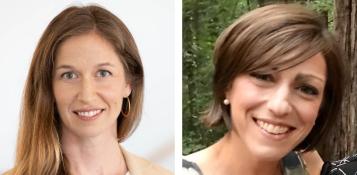By Nicholas Roznovsky
W. Thomas Boyce, MD, a pediatrician and leading expert on the interplay between neurobiological and psychosocial processes, has been selected to receive the 2020 Child Mind Institute (CMI) Sarah Gund Distinguished Scientist Award for Research and Mentorship in Child Mental Health. Boyce will be honored during CMI's annual On the Shoulders of Giants symposium, which is being held virtually from 2:00–5:00 p.m. PDT on October 6, 2020.
Studying the interactive influences of socio-economic adversities and neurobiological responses, Boyce has demonstrated how psychological stress and neurobiological reactivity to aversive social contexts operate conjointly to produce both physical and mental health disorders in childhood populations. A central goal of his work is to develop a new synthesis between biomedical and social epidemiologic accounts of human pathogenesis and to articulate the public health implications of that synthetic view.
His research addresses individual differences in children’s biological susceptibility to social contexts, such as the family, classroom and community. His work, which has generated over 200 scientific publications, demonstrates that a subset of children (“orchid children”) show exceptional biological sensitivity to their social environments and bear higher risks of illness and developmental disorders in settings of adversity and stress. Taken together, findings from his research suggest that supportive and responsive early environments have powerful effects on children’s health and well-being. This work is the subject of his 2019 book, The Orchid and the Dandelion: Why Some Children Struggle and How All Can Thrive.
Boyce is a professor emeritus of pediatrics and psychiatry at the University of California, San Francisco, where he formerly served as Lisa and John Pritzker Distinguished Professor of Developmental and Behavioral Health. Previously, he was the associate dean for Research at the UC Berkeley School of Public Health and the BC Leadership Chair in Child Development at the University of British Columbia, Vancouver. He is past co-director of the Child and Brain Development Program for the Canadian Institute for Advanced Research, is a member of the JPB Foundation Research Network on Toxic Stress in Children, served on the Board on Children, Youth and Families of the National Academies of Science, and was elected in 2011 to the National Academy of Medicine.
Symposium to feature UCSF researchers and roundtable on child mental health

Nicki Bush, PhD, (left) and Danielle Roubinov, PhD
Joining Boyce as speakers at this year's symposium will be two fellow UCSF faculty members whose own research has been impacted by his work — Nicki Bush, PhD, and Danielle Roubinov, PhD.
Bush is an associate professor in the UCSF Departments of Psychiatry & Behavioral Sciences and Pediatrics, and the director of research for the Division of Developmental Medicine. Her research examines how socioeconomic, parental, and environmental risks for maladaptive behavior and developmental psychopathology are modulated by individual differences in children’s temperamental, neurobiological, and genetic reactivity to stress. She also investigates the ways in which contextual experiences of adversity become biologically embedded by changing children’s developing physiologic systems and epigenetic processes, thereby shaping individual differences that mediate and moderate the effects of context on trajectories of development and mental health.
Roubinov is a licensed clinical psychologist and an assistant professor in the UCSF Department of Psychiatry and Behavioral Sciences. She joined the department's faculty in 2017, following a two-year fellowship in developmental psychobiology. Her research focuses on the pathways and mechanisms through which exposure to adversity early in life shapes children’s trajectories of physical and psychological health. She is currently the principal investigator of a five-year Career Development Award (K23) from the National Institute of Mental Health (NIMH) that focuses on understanding and treating symptoms of depression and anxiety during early childhood.
Following their remarks, the event will feature a roundtable discussion, moderated by Nora Volkow, MD, and composed of past Distinguished Scientists honorees, to discuss issues of racism and inequality on children’s mental health – as well as the future of training in the field. Registration for the event is free and required. For more information, visit childmind.org/event/on-the-shoulders-of-giants/.
About UCSF Psychiatry and Behavioral Sciences
The UCSF Department of Psychiatry and Behavioral Sciences and the Langley Porter Psychiatric Institute are among the nation's foremost resources in the fields of child, adolescent, adult, and geriatric mental health. Together they constitute one of the largest departments in the UCSF School of Medicine and the UCSF Weill Institute for Neurosciences, with a mission focused on research (basic, translational, clinical), teaching, patient care, and public service.
UCSF Psychiatry and Behavioral Sciences conducts its clinical, educational, and research efforts at a variety of locations in Northern California, including Langley Porter Psychiatric Hospital; UCSF Medical Centers at Parnassus Heights, Mission Bay, and Mount Zion; UCSF Benioff Children’s Hospitals in San Francisco and Oakland; Zuckerberg San Francisco General Hospital and Trauma Center; the San Francisco VA Health Care System; UCSF Fresno; and numerous community-based sites around the San Francisco Bay Area.
About the UCSF Weill Institute for Neurosciences
The UCSF Weill Institute for Neurosciences, established by the extraordinary generosity of Joan and Sanford I. "Sandy" Weill, brings together world-class researchers with top-ranked physicians to solve some of the most complex challenges in the human brain.
The UCSF Weill Institute leverages UCSF’s unrivaled bench-to-bedside excellence in the neurosciences. It unites three UCSF departments—Neurology, Psychiatry, and Neurological Surgery—that are highly esteemed for both patient care and research, as well as the Neuroscience Graduate Program, a cross-disciplinary alliance of nearly 100 UCSF faculty members from 15 basic-science departments, as well as the UCSF Institute for Neurodegenerative Diseases, a multidisciplinary research center focused on finding effective treatments for Alzheimer’s disease, frontotemporal dementia, Parkinson’s disease, and other neurodegenerative disorders.
About UCSF
The University of California, San Francisco (UCSF) is exclusively focused on the health sciences and is dedicated to promoting health worldwide through advanced biomedical research, graduate-level education in the life sciences and health professions, and excellence in patient care. UCSF Health, which serves as UCSF’s primary academic medical center, includes top-ranked specialty hospitals and other clinical programs, and has affiliations throughout the Bay Area.






